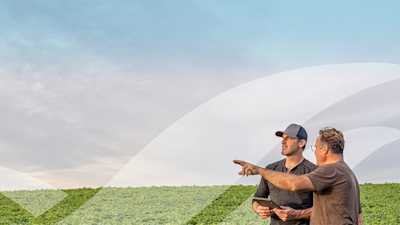No money for a retirement house

The following fictional case study was created by MNP.
Hans and his wife, Heike, have been farming as a corporation since 1990. They took on significant debt to get the farm started and were motivated to pay it down as fast as possible. Both had various off-farm jobs and hadn’t drawn much money from the company, as off-farm income covered most personal expenses.
A retirement plan takes shape
The plan was to build a small new house for retirement when they turned 65 and cash in some RRSPs. But as they turned 60, they decided to build the new home sooner. Both hoped for an active retirement, including travel and hobbies. Neither of their two children planned to farm, but the plan had been to keep the land after retirement and live on the rent.
It quickly became apparent that there was a problem. Their decision to prioritize debt repayment meant they hadn’t drawn personal income from the farm over the years. There were no personal funds available to build a retirement house.
The corporation was debt-free and had accumulated some cash; its corporate net worth was over $10 million. However, aside from the RRSPs, their personal holdings were minimal. The original farm property was in their name, but the corporation owned subsequent properties.
Exploring imperfect options
Sitting down with their accountant, they worked through their choices. They had several options to pay for the new house, but none were ideal. They could:
have the farm corporation pay for and own the house
cash in their RRSPs early and pay taxes
pull dividends from the farm corporation as personal income and pay income tax on that money
borrow money personally and begin taking personal income from the company each year going forward to repay the mortgage
transfer the home farm that they owned personally into the corporation and extract funds in exchange
sell the personally owned farm
Understanding the tax and estate impacts
Many farmers view their land and farm assets as their retirement nest egg and fail to withdraw personal income.
Their accountant explained that their situation was not uncommon. Many farmers view their land and farm assets as their retirement nest egg and fail to withdraw personal income from the business over their career.
Yes, they would have had to pay income tax on that money, and it would take longer to pay down the farm debt, but they would be in a better position to retire and formulate a succession plan. Hans and Heike reviewed the options.
Weighing the options
Having the company own the new house would mean even more assets tied to the corporation, complicating their estate planning. Their accountant also advised that if the company owned the home, they would need to pay reasonable rent to the company or pay personal tax on the value of the housing benefit. But if the new house was built on corporate land, having the house paid for by the entity that owned the land made sense from a legal perspective.
Cashing in RRSPs would result in a personal tax hit now and would defeat the purpose of contributing to them. To cash them all in at once now would mean being taxed at over 50 per cent, rather than a lower rate if they cashed them out over time.
A high tax rate would also apply if they took large dividends from the company to fund the construction costs up front. Again, that would mean undoing a lot of the tax benefit of operating through a corporation over the years.
Another option was to borrow the money personally to build the house. Hans and Heike could then take annual dividends from the company to service their personal debt. The thought of significant new debt didn’t sit well with them. However, it would allow them to extract cash from the company in an orderly manner at a significantly lower tax rate than if they took it all at once.
Heike asked about borrowing the money from their corporation rather than the bank, but their accountant explained that while that was a common question, the tax rules don’t allow it.
They could transfer the home farm, which they owned personally, into the company. In exchange, Hans and Heike could withdraw cash from the company and purchase a separate building lot they would own personally. While appealing in the short term, it also presented more estate planning considerations.
Lessons for the next generation
While they had no regrets about paying down their debts, Hans and Heike realized that drawing a modest annual income from the company would have made their retirement house build and estate planning more straightforward. As the saying goes, they had deferred a lot of tax over the years, but they hadn’t escaped it.
Planning for the years ahead?
FCC’s Will and Estate Pre-Planning Tool may be a helpful first step in your journey.
FCC Advisory Services offers free, personalized support to help farm families clarify goals, navigate transition and move forward with confidence. Business advisors can guide the conversation and help eliminate roadblocks.
MNP is a leading national accounting, tax and business consulting firm in Canada.
From an AgriSuccess article.

